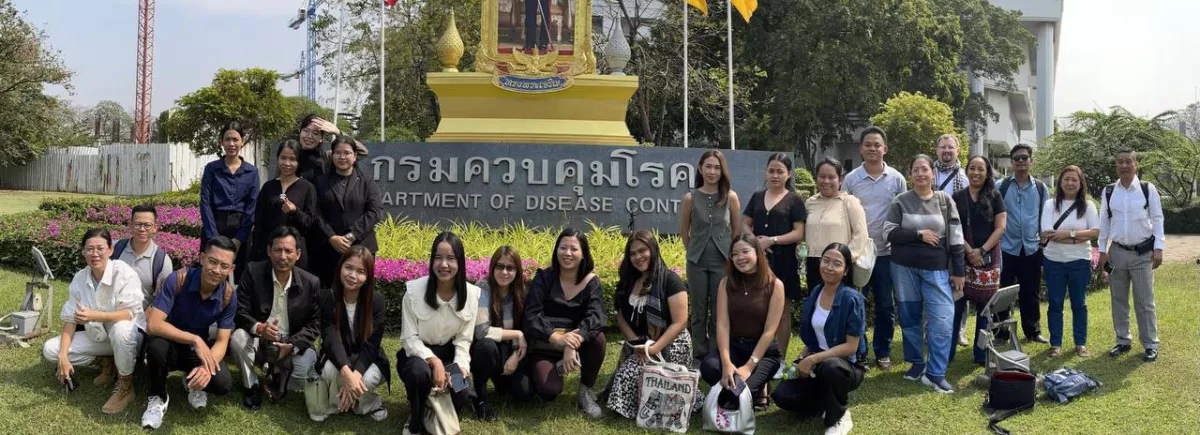
In Bangkok, Twenty-Five Cambodian and Filipino Journalists Train in the 'One Health' Approach
Related project
Media for One healthFrom January 20 to 24, twenty-five Cambodian and Filipino journalists traveled to Bangkok to meet with researchers, academics, and government officials using the "One Health" approach to address health and environmental challenges in Thailand.
Exploring the Connections Between Health and Environment in Thailand
For six months, these journalists from the "One Health Media" project had been familiarizing themselves with the "One Health" concept in their respective countries. Their training, led by CIRAD, began in September in Manila and Phnom Penh, followed by a decentralized program in Battambang and Bukidnon (Mindanao). There, they engaged with NGOs and scientists working to safeguard public health and ecosystems through this interdisciplinary approach.
Kicking off 2025, this immersive week in Thailand pushed their learning further. By meeting authorities, researchers, and communities applying the "One Health" method, they gained deeper insights into Thailand’s efforts in this field and strengthened their understanding of the international networks supporting institutional and scientific initiatives.
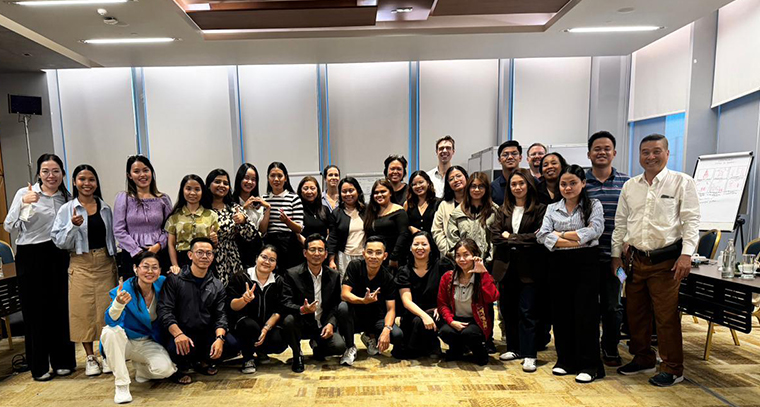
Hands-On Training in Engaging Video Content
Staying true to the project's philosophy, the program combined scientific discussions with media training. The focus was on mobile journalism, equipping journalists with the skills to produce engaging, accessible, and visually compelling content on environmental and health issues. Highly practical, the training covered filming, editing, and publishing mobile-friendly content tailored to modern digital platforms.
The training was led by Akanksha Saxena, a Deutsche Welle journalist and expert trainer in mobile journalism and digital storytelling. Over five dynamic days, participants explored the impact of mobile journalism, learned storytelling principles to create compelling narratives, and practiced field reporting techniques. They also mastered mobile editing applications, ensuring they could quickly produce high-quality content.
The program catered to journalists from diverse media backgrounds—TV, radio, and online news—helping them adapt their content for internet platforms and social media.
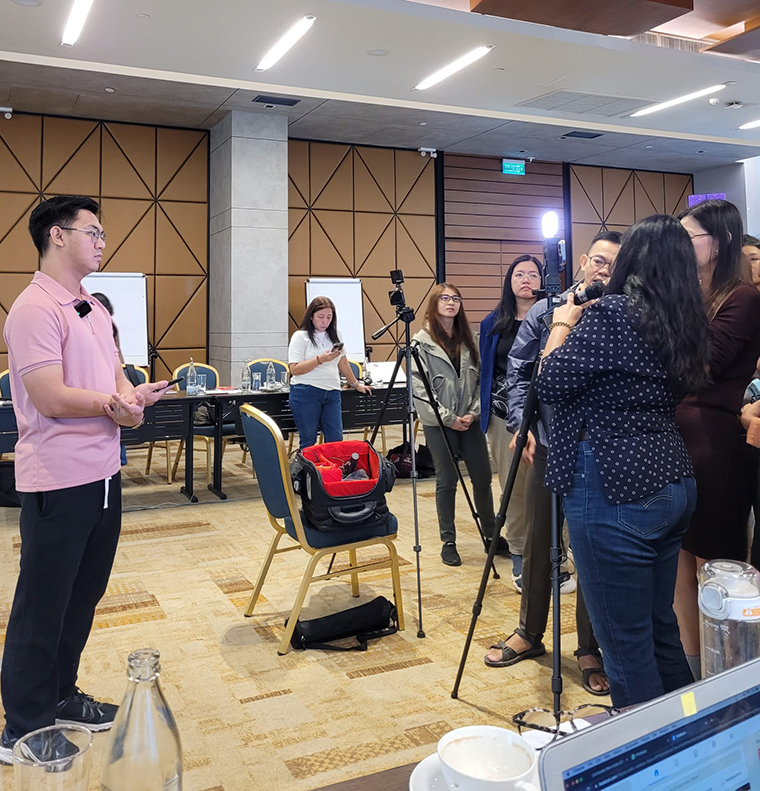
After honing their technical skills, the journalists embarked on field visits, meeting NGOs and scientists to prepare video reports on how Thailand utilizes the "One Health" approach to address medical and environmental challenges.
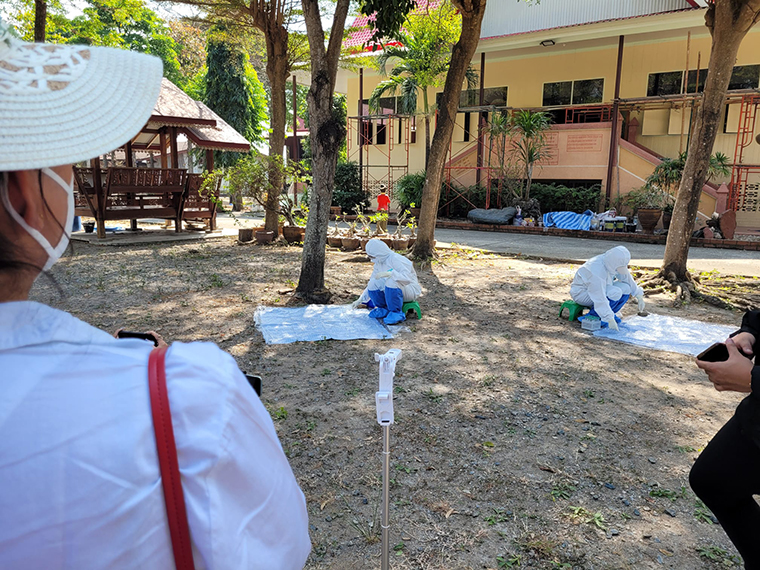
Immersion in Chonburi: Investigating the Nipah Virus
A highlight of the trip was the visit to Wat Luang Phrommawat temple in Chonburi province, home to a large colony of fruit bats (genus Pteropus, also known as Flying Foxes), approximately two hours from Bangkok. There, participants observed the collection of bat urine samples used to study the Nipah virus.
They also had the opportunity to interview Dr. Supaporn Wacharapluesadee from the Thai Red Cross Emerging Infectious Diseases Health Science Centre at Chulalongkorn University. A leading expert on the Nipah virus for over two decades, Dr. Wacharapluesadee integrates the "One Health" approach in her research. Her insights helped the journalists better understand the role of fruit bats in virus transmission and the preventive measures taken to mitigate its spread.
These interactions resulted in powerful testimonials, captured, and transformed into awareness-raising videos about the Nipah virus and its containment. These videos were later shared across CFI-supported media platforms, as well as Facebook, YouTube, and TikTok. For instance, the Filipino outlet Palawan News featured their coverage under the hashtag: #ONEHEALTH || TRACKING THE NEXT PANDEMIC: PALAWAN NEWS MEETS RENOWNED ... | TikTok
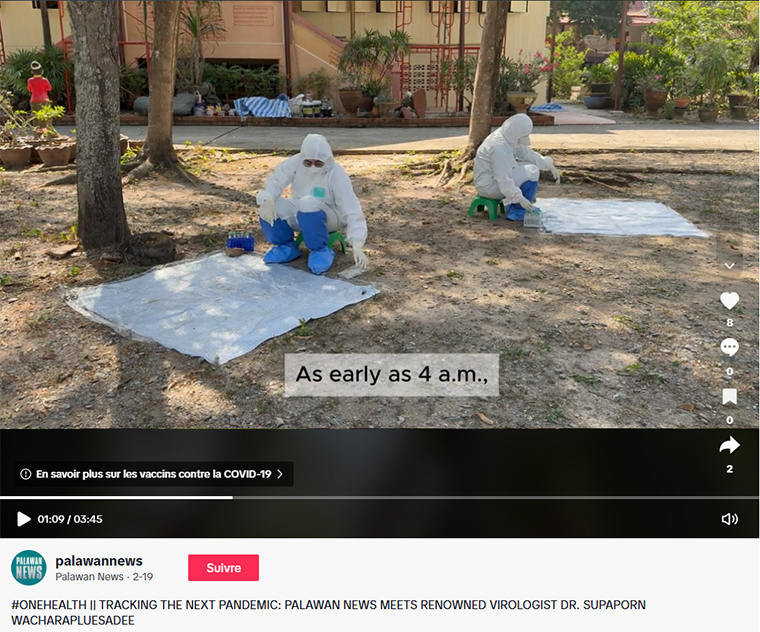
Engaging with Universities and Institutions on "One Health"
The latter half of the week focused on refining video reports and visiting key institutions such as Mahidol University, renowned for its public health research, particularly in emerging diseases and antibiotic resistance within the "One Health" framework.
Journalists also met with officials from Thailand’s Department of Disease Control (Ministry of Public Health). Dr. Soawapak Hinjoy led a session on crisis communication, using Thailand’s COVID-19 management as a case study. She emphasized how transparent data-sharing and collaboration between journalists and authorities play a crucial role in disseminating essential public health information.
The discussion underscored a key aspect of the "One Health" approach: fostering inter-institutional dialogue to promote cross-sectoral public policies. The session featured insights from key stakeholders, including Mr. Kriangkamol Muankrud (Director, Bureau of Risk Communication and Health Behavior Development), Dr. Teerasak Chuxnum and Dr. Panumard Yarnwaidsakul (Department of Disease Control), and Dr. Alisa Yanason (National Professional Officer for Health Emergencies, WHO Thailand).
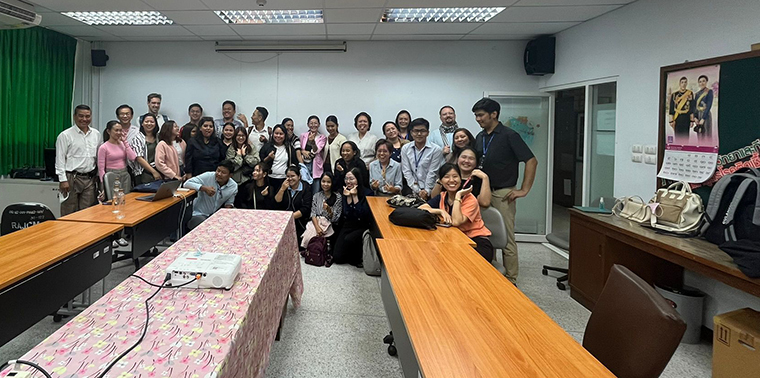
Transforming Journalists into Mobile Storytelling Experts
This innovative training empowered Cambodian and Filipino journalists with essential mobile journalism skills, enabling them to create high-quality, engaging videos on public health and environmental issues. Beyond mastering new techniques, the experience deepened their understanding of the "One Health" approach, equipping them to incorporate these principles into their reporting and audience awareness efforts.
With a blend of theoretical learning and hands-on exercises, participants harnessed the full potential of mobile tools to craft compelling, informative stories. Their ability to reach new audiences with digital-first, platform-adapted content has been significantly enhanced.
What’s Next?
In March, the same group will undergo fact-checking training in Phnom Penh. This session will provide them with cutting-edge methods and techniques to combat misinformation on medical and environmental issues, further strengthening their role as credible, informed storytellers in their respective countries.


